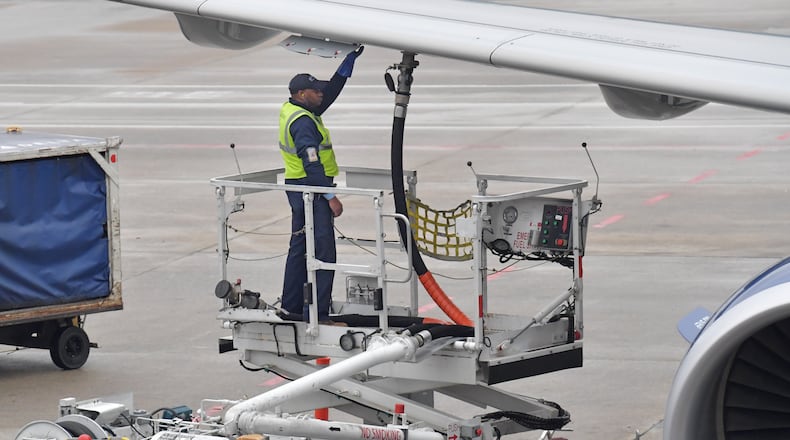Delta Air Lines acknowledged lobbying against some environmental measures in a new report.
The Atlanta-based airline, which also owns an oil refinery in Pennsylvania, released its first climate lobbying report Tuesday to comply with a new requirement pushed by institutional investors who want transparency on companies’ positions on environmental policies.
Delta’s board opposed the shareholder proposal from French banking giant BNP Paribas Asset Management to require a report to help investors better understand climate risk. But the measure still gained shareholder approval at the airline’s annual meeting last June.
Delta has invested in alternative fuel development and other environmental efforts such as carbon offsets for years, and recently named its first chief sustainability officer, Pamela Fletcher.
But the company acknowledged in the report that it lobbied to lower the required volume of renewable fuel because its Trainer, Pennsylvania, oil refinery has incurred high costs to comply with the standards. Delta also said it believes climate policy should “incentivize, rather than mandate a zero-carbon trajectory.”
And, the airline acknowledged it is a member of airline industry associations that lobbied against environmental taxes and fees, per-flight emissions disclosures and mandates to use sustainable aviation fuels, which are produced from renewable resources such as algae.
Delta is also a member of the U.S. Chamber and Business Roundtable, which have opposed President Joe Biden’s Build Back Better legislation including climate change provisions and incentives for development of sustainable aviation fuels. The bill failed to pass the Senate late last year after U.S. Sen. Joe Manchin, D-W.Va., declined to support the package.
Delta said it supports the sustainable aviation fuel provisions in the Build Back Better package, calling that an area of “misalignment” with the business lobbying groups.
Monroe Energy LLC, the Delta subsidiary that owns the Trainer refinery, is a member of the American Fuel & Petrochemical Manufacturers, which opposes certain climate provisions in the Build Back Better package, the airline acknowledged.
“While we do not always agree with the views or tactics of these trade associations, we believe they provide a valuable opportunity to understand the perspectives of various industry participants,” Delta said in its report.
Monroe is considering whether it can produce renewable fuels at the Trainer refinery to support Delta’s goal of replacing 10% of its jet fuel consumption by the end of 2030. That will require at least 400 million gallons of sustainable aviation fuel annually, the airline said.
Delta said it has supplier agreements for about 81 million gallons of sustainable aviation fuel by the middle of the decade, subject to adequate investment and facility development.
“The global aviation industry is a hard-to-abate sector, meaning it is innately difficult to decarbonize,” Delta said in the report.
About the Author
The Latest
Featured



